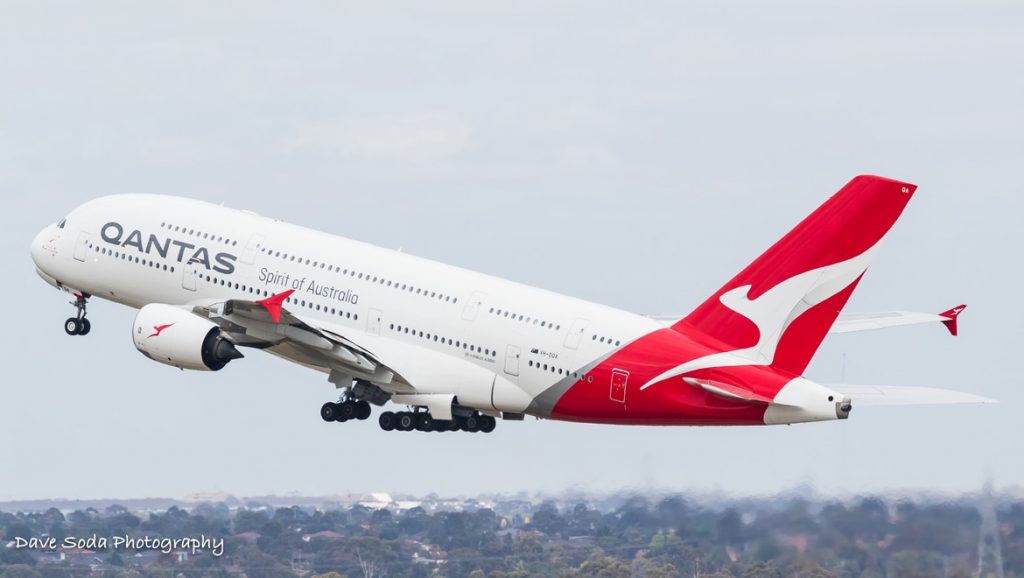
Qantas will invest $50 million to help support the establishment of a local sustainable aviation fuel (SAF) industry in Australia.
Notably, the airline also announced that by 2050, it hopes to see 60 per cent of all its fuel to be derived from SAF, alongside an interim goal of 10 per cent by 2030.
Qantas is also calling on the Australian government to support the initiative, and make progress towards the production of locally-sourced SAF.
“We are having good dialogue with both sides [of government],” Qantas CEO Alan Joyce said on Thursday.
“This is a huge opportunity for Australia… that can create a huge amount of jobs in this country, and the security it would give against what’s going on in the rest of the world.
“Wouldn’t it be great if we were just dependant on our own country for that?”
Joyce said that Australia’s federal and state governments should be advocating more for a local SAF industry, stating its “a shame” that little progress has been made so far.
“It’s a shame if Qantas meets its 10 per cent sustainable aviation fuel target in 2030 by just buying it offshore. That would be terrible outrage in my mind, and it’s a terrible dropping of the ball in Australia.”
The airline’s goal to establish a local SAF industry will be helped through a Memorandum of Understanding, signed by Qantas today together with banking giant ANZ and Japanese resources company INPEX, on a major reforestation and carbon farming project, in Western Australia’s wheatbelt region.
The comments were made as Qantas revealed its Group Climate Action Plan to reach its zero emissions target by 2050, setting an interim target to reduce carbon emissions by 25 per cent by 2030.
The airline has outlined a number of key initiatives to achieve this target, including eliminating the use of single use plastics onboard its aircraft within five years, increasing its access to and use of sustainable aviation fuels (SAF), investing in more fuel-efficient aircraft, and continuing to invest in carbon offset programs.
“The aviation industry is a critical and irreplaceable industry, particularly for Australia,” Qantas CEO Alan Joyce said on Thursday.
“That’s why we believe that we need a sustainable future.”
This all comes despite Qantas’ announcement earlier this month to produce and sell controversial NFTs, which are notoriously known to use excessive energy and greenhouse gas emissions in order to create, sustain and sell these tokens.
While the airline did pledge to minimise carbon emissions through this program, is unclear if Qantas will be counting the emissions produced in the creation and sale of its own NFTs in calculating the group’s total emissions.
Joyce said that he believes that alternative aircraft propulsion solutions, such as hydrogen or electric aircraft, “are going to take decades before feasible”, and therefore the airline will focus its attentions on moves that can be achieved with today’s technologies.
The Qantas CEO said that to date, Qantas has already made inroads on its goal to reduce single use plastic waste on its aircraft, and has also made major decisions regarding its future domestic workhorse fleet, after announcing it will replace its Boeing 737 fleet with Airbus A320neo family jets, reducing CO2 emissions by up to 20 per cent.
More recently, Qantas has also increased its investment in SAF, which can reduce aircraft emissions by up to 80 per cent compared to traditional jet fuels, through deals struck in London and California.
“Since January, 15 per cent of our fuel on the London route is sustainable aviation fuel,” Joyce said.
“In the last few weeks signed a deal in California, so now 10 per cent of our San Francisco route fuel will be sustainable and we want to do more than this.
“It also has a huge benefit that can be mixed with jet kerosene, so you can use the existing pipelines, the existing distribution systems to get that fuel for aircraft,” Joyce said.
















Mike
says:It’s a pity they don’t invest some money in their call centers and bring them back to Australia. It’s currently a third world product, hours of waiting, disconnections and poorly trained staff.